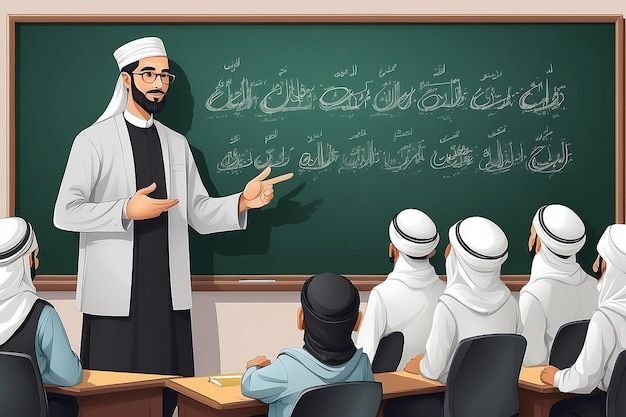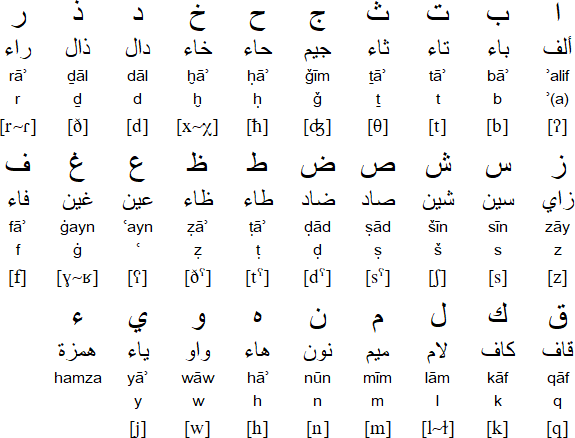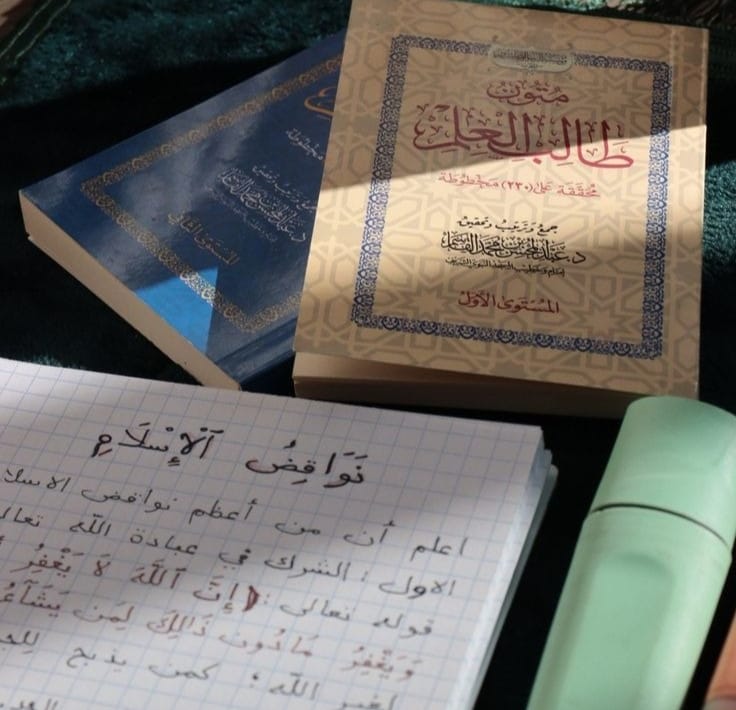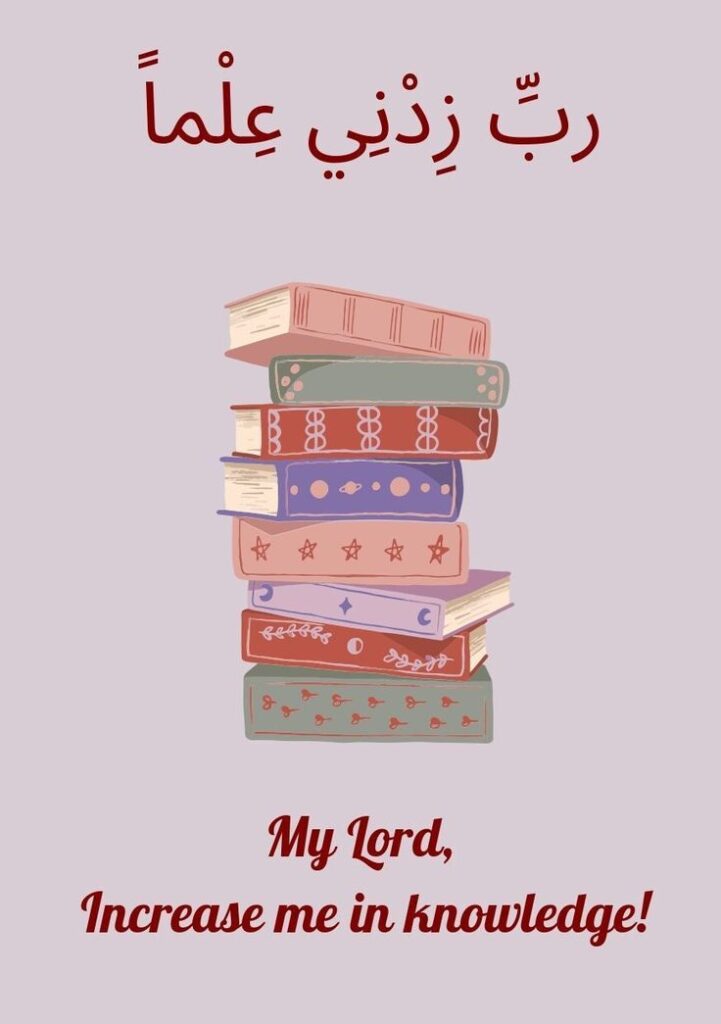
Fusha Arabic is the foundation of the Arabic language — a refined, eloquent, and timeless form that unites millions of speakers across the Arab world. Known for its precision, beauty, and rich heritage, Fusha is not only the language of the Quran but also the key to understanding classical literature, modern media, and academic discourse.
In this guide, we’ll explore what Fusha Arabic is, its history and origins, why learning it is so valuable, and practical steps to start your journey. Whether your purpose is academic, professional, or spiritual, mastering Fusha will open doors to a deeper connection with the Arabic language and culture.
What Is Fusha Arabic?

Fusha Arabic is the classical and standard form of the Arabic language, deeply rooted in the rich heritage of Classical and Quranic Arabic. It is the version of Arabic used primarily in formal contexts such as writing, education, media, literature, and official speeches. Known for its precise grammar, eloquent style, and wide vocabulary, Fusha is considered the bridge that unites Arabic speakers across different countries and dialects.
Often referred to as Modern Standard Arabic (MSA) or Literary Arabic, Fusha is the language of news broadcasts, books, academic lectures, and political discourse. It transcends regional variations, allowing speakers from Morocco to Oman to communicate in a shared, universally understood form.
Beyond its practical role, Fusha carries cultural and historical significance—it is the language of the Holy Quran, classical poetry, and centuries of scholarship. As one of the six official languages recognized by the United Nations, Arabic—and by extension, Fusha—holds a prestigious position on the world stage.
Every year, on December 18, Arabic Language Day is celebrated to honor its influence, beauty, and importance. Many linguists and scholars describe Fusha Arabic as the elite of the Arabic tongue, a refined form of speech governed by well-defined rules that demand respect and mastery. It is a language that not only connects generations but also preserves the essence of Arab identity and heritage.
History and Origins of Fusha Arabic

The term Fusha (الفصحى) originates from the Arabic root “ف ص ح” which conveys meanings of clarity, eloquence, and purity of expression. In its linguistic sense, al-Fusha refers to the most refined and unambiguous form of Arabic — a standard that is free from dialectal variations or colloquial simplifications. This association with purity and precision has made Fusha synonymous with the highest form of eloquence in Arabic culture.
Historically, Fusha Arabic evolved from Classical Arabic, the language of pre-Islamic poetry and the Quran, which reached its peak of development in the 6th and 7th centuries CE. This form of Arabic became the foundation for Islamic scholarship, jurisprudence, and literature after the advent of Islam, with the Quran serving as the ultimate linguistic and stylistic reference. The early Muslim conquests spread the Arabic language across vast territories, reinforcing the dominance of Fusha as the unifying language for administration, education, and culture.
Over centuries, the Arabic language diversified into many regional dialects due to geographical, political, and cultural factors. Yet, Fusha retained its status as the standard form used in writing, religious discourse, literature, and formal communication. Its preservation was supported by scholars, grammarians, and lexicographers, particularly during the Abbasid era, when centers of learning like Baghdad and Damascus became hubs for linguistic refinement.
In modern times, Fusha — also known as Modern Standard Arabic (MSA) — continues to be taught in schools, broadcast in media, and used in formal speeches across the Arab world. While it has undergone some modernization to suit contemporary needs, it still maintains its deep historical roots and connection to the Quranic language. This dual role as both a living language and a vessel of cultural and religious heritage underscores Fusha’s enduring importance in uniting Arabic speakers and preserving a shared identity.
Why Learn Fusha Arabic?
Fusha Arabic, or Modern Standard Arabic (MSA), is much more than just a language, It’s a gateway to an entire world of history, culture, and knowledge. Whether your interest is academic, professional, or personal, mastering Fusha opens doors that very few languages can.
Here’s why learning Fusha Arabic is so valuable:
1. Access to a Rich Cultural Heritage with Fusha Arabic

Fusha is the language of the Quran, classical literature, and centuries-old historical texts. By learning it, you’re not just memorizing vocabulary and grammar; you’re stepping into a tradition that has been carefully preserved for over a thousand years. It allows you to appreciate the depth and beauty of Arabic poetry, philosophy, and storytelling in their original form — without losing meaning in translation.
2. A Common Language Across the Arab World
Although spoken dialects vary widely from Morocco to Oman, Fusha is understood everywhere in formal settings. It’s the language used in news broadcasts, academic lectures, official speeches, and formal writing. This means you can communicate clearly with Arabic speakers from different countries, even if their local dialect is completely different.
3. Academic and Professional Advantages
For students, researchers, journalists, diplomats, and professionals working in the Arab world, Fusha is indispensable. It’s the language of government, media, and academia. Knowing it can open doors to careers in translation, education, international relations, and research.
4. A Strong Foundation for Dialects
If you eventually want to learn Egyptian Arabic, Levantine Arabic, Gulf Arabic, or any other regional variety, Fusha gives you the perfect starting point. Its grammar, vocabulary, and sentence structure form the backbone of all Arabic dialects, making the learning process faster and smoother.
5. Religious and Spiritual Significance
For Muslims, Fusha is the language of the Quran and Islamic scholarship. Learning it deepens your understanding of religious texts, prayers, and traditions. Even for non-Muslims, it offers a unique insight into the religious and philosophical heritage of the Arab world.
6. Broader Access to Information
A vast amount of news, academic papers, historical archives, and even modern literature is written in Fusha. By mastering it, you unlock access to knowledge and perspectives that are often unavailable in other languages.
7. Sharper Communication Skills
Because Fusha is precise and highly structured, it encourages clarity of thought and expression. It teaches you to use language carefully, which can improve not just your Arabic but your communication skills in general.
How to Learn Fusha Arabic
Learning Fusha Arabic (Modern Standard Arabic) is a rewarding journey that opens the door to understanding the Quran, classical texts, and modern Arabic media. To make steady progress, follow a clear and logical path:
1. Learn the Arabic Alphabet & Sounds

Start by mastering the 28 letters, their different forms depending on position in a word, and their pronunciation — especially unique sounds like ع (ʿayn), ق (qāf), and غ (ghayn). Understanding the script and sounds is the foundation for reading, writing, and correct pronunciation.
2. Build Core Reading Skills
Once you recognize the letters, practice reading syllables, short words, and simple sentences. This will help you connect letters smoothly and read without hesitation.
3. Understand Basic Grammar
Learn essential grammar rules such as sentence structure, verb conjugation patterns, noun–adjective agreement, and plural forms. Strong grammar skills will allow you to construct meaningful and accurate sentences.
4. Expand Vocabulary & Useful Phrases
Begin with common words and daily expressions, then gradually move to more sophisticated vocabulary found in literature, speeches, and news. Organize your learning into themes (e.g., family, travel, religion, work) for faster recall.
5. Practice Listening & Speaking
Expose yourself to authentic Fusha content: news reports, Quranic recitations, podcasts, and educational videos. Repeat what you hear to improve pronunciation and rhythm, and practice speaking — even to yourself — to build fluency.
6. Develop Writing Skills
Write short sentences and paragraphs in Fusha, starting with personal introductions or simple descriptions. Gradually challenge yourself with summaries of articles or stories.
7. Be Consistent & Immersive
Dedicate daily time — even 20–30 minutes — to studying. Combine formal study with immersion: read headlines, label household items in Arabic, and think in Arabic throughout the day.
8. Learn in Context
Instead of memorizing isolated words, learn vocabulary in sentences or dialogues. This helps you understand how words function naturally in real communication.
Common Challenges in Learning Fusha Arabic
Learning Fusha (Modern Standard Arabic) can be both exciting and demanding. While it opens the door to a rich literary and cultural tradition, it also comes with a set of challenges that every learner is likely to face. Understanding these difficulties from the start can help you prepare and progress with confidence.
1. Mastering the Script and Pronunciation
The Arabic alphabet is written from right to left and contains letters that may be unfamiliar to beginners. Some sounds don’t exist in many other languages — for example:
- ع (ʿayn) in عربي (ʿarabi – Arabic)
- غ (ghayn) in غرفة (ghurfa – room)
- ق (qaf) in قلب (qalb – heart)
Short vowels ( َ ِ ُ ) are usually not written in everyday texts, so you might see كتب without knowing if it should be kataba (he wrote) or kutub (books) without context.
2. Navigating Complex Grammar
Fusha grammar is systematic but rich in rules, with verb conjugations, noun cases, and agreement patterns that require patience to master. Case endings can be tricky — for example, the word كتاب (kitaab – book) changes to كتابٌ (kitaabun) in the nominative case, كتابًا (kitaaban) in the accusative, and كتابٍ (kitaabin) in the genitive.
3. Expanding Vocabulary
Fusha has an extensive vocabulary. A single concept might have multiple words depending on context or formality. For instance, “lion” could be أسد (asad), ليث (layth), or سبع (sabʿ). Focusing first on the most common words can help you build a practical foundation
4. Limited Everyday Use
Unlike spoken dialects, Fusha isn’t commonly used in daily conversations, so it can be challenging to find real-life practice. You might read مرحبا بكم في برنامجنا (marḥaban bikum fī barnāmajina – welcome to our program) in formal speech but hear a dialectal form in casual talk.
5. Staying Motivated
Progress in Fusha can feel slow at times, especially if you’re aiming for grammatical accuracy. Setting achievable goals — like learning 5–10 new words a day or practicing a short text aloud — can help keep your momentum.
6. Dialects vs. Fusha
Arabic dialects differ significantly from Fusha. For example, “How are you?” is كيف حالك؟ (kayfa ḥāluka?) in Fusha, but إزيك؟ (izzayyak?) in Egyptian Arabic. Understanding when and where to use Fusha is key to avoiding confusion.
Fusha Arabic in Islamic Studies
Fusha Arabic, also known as Classical Arabic or Modern Standard Arabic, is far more than just another language — it is the very language of the Quran, the Sunnah, and centuries of Islamic scholarship. For anyone passionate about deepening their understanding of Islam, mastering Fusha is like holding the key to a vast treasury of knowledge that translations can only partially convey.
Fusha Arabic: The Language of the Quan

The Quran was revealed in eloquent Fusha Arabic, with each word, sound, and structure chosen by divine wisdom. While translations can provide meaning, they cannot fully capture the linguistic beauty, subtle nuances, and rhetorical power that are intrinsic to the original Arabic text. Words in the Quran often carry multiple layers of meaning, and understanding them in their original form allows a richer, more accurate connection with the message of Allah.
Fusha Arabic in Hadith and Islamic Scholarship
Beyond the Quran, Fusha is also the language of the Hadith — the sayings, actions, and approvals of Prophet Muhammad ﷺ — which form the second most important source of Islamic guidance. Classical Islamic books on Tafsir (Quranic exegesis), Fiqh (jurisprudence), Aqeedah (creed), and other sciences were all authored in Fusha. Without it, one must rely solely on translations and interpretations, often missing the precision and depth that scholars intended.
Appreciating the Linguistic Miracles of the Quran
Learning Fusha also opens the door to appreciating the linguistic miracles (I’jaz) of the Quran — such as the rhythm, choice of vocabulary, and syntactic structures that make it inimitable. It allows students of knowledge to engage directly with scholarly works from different eras and regions of the Muslim world, from the writings of Imam al-Ghazali to Ibn Taymiyyah, from classical poetry to modern academic research.
In Islamic studies, Fusha is not only a tool for reading; it is a bridge for thinking and reasoning within the framework of the Arabic language. It enriches one’s duʿa (supplications), improves the quality of khushuʿ (concentration) in prayer, and fosters a deeper spiritual connection during recitation of the Quran.
For students, imams, teachers, and anyone seeking to strengthen their Islamic knowledge, learning Fusha is a lifelong investment. It is the language that unites Muslims from all cultures and continents in shared prayer, study, and understanding. Whether you are studying Tafsir in Egypt, attending a Hadith class in Medina, or reading classical works in your own home, Fusha is the unifying thread that connects you to over 1,400 years of scholarship and tradition.
In short, Fusha Arabic in Islamic studies is not just an academic subject — it’s the pathway to preserving, understanding, and living Islam in its purest form.
✨ If you’d like to explore more about our Islamic Studies course and learn how to get started step by step, check out our detailed blog post here.
Final Tips for Mastering Fusha Arabic

Mastering Fusha Arabic is a journey that rewards patience, dedication, and genuine passion for the language. Here are some key points to keep in mind as you progress:
- Stay Consistent: Daily exposure, even in small amounts, is far more effective than long but infrequent study sessions. Ten minutes every day can be more valuable than two hours once a week.
- Read Widely: Explore Fusha through different sources — the Quran, classical literature, news articles, children’s books, and even modern essays. This variety will help you adapt to different writing styles and enrich your vocabulary.
- Listen Actively: Immerse yourself in Fusha audio — lectures, podcasts, news broadcasts, and recitations. Listening with focus helps you internalize correct pronunciation, rhythm, and intonation.
- Speak Without Fear: Don’t wait until you “feel ready” to speak. Even if you make mistakes, speaking aloud helps your brain connect words with meaning faster and builds confidence.
- Write Often: Keep a short daily journal or copy meaningful passages in Fusha. Writing forces you to think about sentence structure, grammar, and word choice.
- Engage with Native Speakers: Whenever possible, converse with people who speak Fusha fluently, whether in person, online, or through study groups. Their feedback will be invaluable.
- Reflect the Spirit of the Language: Remember that Fusha is more than just words — it carries the beauty, depth, and precision of Arabic culture and heritage. Approach it with respect and curiosity.
- Stay Motivated: Connect your learning to a purpose — whether it’s understanding the Quran more deeply, appreciating Arabic literature, or excelling in academic studies. Purpose fuels persistence.
Above all, remember that learning Fusha Arabic is not just about acquiring a skill — it’s about joining a centuries-old tradition of eloquence, clarity, and expression. Every step forward is part of a rich linguistic and cultural legacy.
Are you ready to start your journey with Fusha Arabic?
At Areeb Academy, we offer structured online classes in Fusha Arabic, Quran memorization, Tajweed and Islamic studies — guided by experienced teachers who bring the beauty of the Arabic language to life.
Start your free trial today and take the first step toward mastering Fusha Arabic.
FAQs
1. Is Fusha Arabic the same as Modern Standard Arabic (MSA)?
Yes. Fusha Arabic is also known as Modern Standard Arabic. It is the formal version of Arabic used in the Quran, literature, media, and education.
2. How long does it take to learn Fusha Arabic?
The time varies depending on your dedication. With consistent daily practice (20–30 minutes), most learners notice significant progress within 6–12 months.
3. Can I learn Fusha Arabic online?
Absolutely! With online courses, live teachers, and digital resources, you can learn Fusha Arabic from anywhere in the world.
4. Do I need to know colloquial Arabic before learning Fusha?
No. Fusha Arabic can be learned on its own, and it actually helps in understanding dialects later since it’s the root of the Arabic language.
5. Is Fusha Arabic difficult to learn?
Like any language, it takes effort — especially with grammar and pronunciation. But with the right guidance, it becomes much easier and rewarding.
6. Why should I learn Fusha Arabic?
Because it’s the language of the Quran, the key to accessing classical Islamic texts, and a gateway to connecting with more than 300 million Arabic speakers worldwide.


